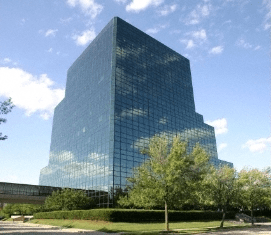Most business owners will, at some point, realize the need to search for office space. Some have started their businesses in their homes and will be looking for office space for the first time. Others will need to search for office space due to growth or to find a more suitable location.
Whatever the reason, one of the first considerations will be whether it is better to purchase or lease office space. For some, the first thing that comes to mind is the upfront cost. Obviously, those costs will be greater if seeking to purchase rather than lease office space. Still, the benefits of owning vs. leasing office space can be attractive. In fact, for those business owners who have the capital to invest, owning is often a better decision.
Income Potential
Many business owners have realized that they can produce an income stream by owning office space. Consider purchasing an office building that is larger than the current needs of the business. After deciding how much of the space is needed for your own business, set up the rest of the space as offices that can be leased to other small business owners. This allows small business owners to generate revenue in the form of rental income. As the business grows, more of the space can be kept for its use and less of the space rented out. This allows the business room to grow without having to buy a larger office building.
Fixed Costs
When a business owner leases office space, there is no guarantee of what the costs will be once the current lease expires. On the other hand, when a business owner purchases office space, the amount of the monthly mortgage will be set. That means that as the business grows, the profit can grow more easily as well. It maybe easier to determine long term budgetary needs as one of the major costs of doing business will be steady.
Tax Benefits
The tax benefits involved with a business owning office space should not be overlooked. Yes, there are some tax benefits when leasing, such as writing off the amount paid in rent, but there are greater benefits available to those business owners who own their office space.
Some such benefits include deducting mortgage interest, property taxes and depreciation. Also, if the building includes rental suites there may be a host of other tax deductions as well.
Of course, tax laws vary depending on location, type of business and other factors, so it would be wise to consult with an expert so it would be clear exactly what types of deductions to expect.
Equity Builder
Owning office space, allows the business owner to build equity in the business. This is valuable not only for the obvious reasons, but owning office space may also help grow the business in the future.
The greater the worth of the business, the better the chance that business has of securing funding for future growth. Having an office building in their portfolio, and the equity that comes with it, could potentially be the difference between a “yes” and a “no” when it comes to securing a business loan in the future.
The benefits of owning vs. leasing office space may make it a wise choice for many business owners. While the initial cost is much greater than leasing, the longer term may outweigh those costs.

